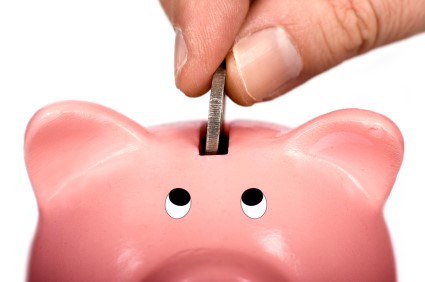The Portuguese have been acquiring more and more savings habits in times of crisis. This article aims to convey various saving tips, being the same used in other different contexts. Let's start with the savings part and a golden rule: the important thing is not how much money we make, but how much money we can save! If I earn small money, but still I can save some, even few, this is the first step.
Virtually all people at certain times in life have made savings, for several reasons. That's why there are, for example, piggy banks. Want to save? Use one or even more piggy banks. But avoid withdrawing money from the piggy bank, even in distressing times. I should just say only in times of irreversible tragedy. One hypothesis? Assign a value to the daily expenses. Spent less than that? Put the rest in a piggy bank. Have coins in your wallet? Put in the piggy bank. The coins are spent very easily and give you little value. Large values are small? Many small values become large. With this kind of activity, you will certainly be amazed at how much you can save over time. Another method that can be used with children is reported in a book by the Portuguese author Camilo Lourenço. Many people consider that the financial education should be something taught in school bench, as soon as possible, and this is a simple example of how this can happen. This method allows to teach children to save three piggy banks: A short-term, a medium-term and other long-term. The short-term piggy bank aims to save for expenses for a close period of time (a game console, for example). The second piggy bank, medium-term, aims to save costs further afield, such as college or a car. Finally, the piggy bank for other long-term decisions, such as buying a house. Some issues to be withheld about the piggy banks. Firstly, the more distant is the goal, the less you should use the piggy bank in question. On the other hand, it may be questioned whether long-term thinking is not too much: With the economy increasingly unstable, it is up to us to proper take care of our children. For example, the cost tends to education and training are increasing, and make a “nest-egg” for the immediate future is a solution. Finally you can put the question: "I have no children, this does not apply to me." The truth is that there is always scope to adapt this technique. Even for those who do not have children, you may think the medium / long term, may want to take a trip, buy a car or want to pay a graduate in a couple of years. The strategy of the three piggy therefore can function.
Another tip for saving: record all expenses for a month. Besides allowing you to understand it´s consumption structure, gives you the possibility to tune regularly every expenses and thus verify which items you can save. This means that making budgets should be the main problem with which we must worry about and cut all the costs that are not strictly necessary? The answer is obvious and it is no! It is natural that at any time we want to buy something that can be eccentric. Saving does not mean it cannot happen, and I think that in every moment of our lives, we have the ability to know how to choose what is good or bad for us.
Suppose then you possess has a particular object that costs 100 €. Does the cost should be the sole criterion to avoid your purchase? No! Firstly, think if you need it. And by all means, what´s is considered a need should not only be considered was a first necessity. We must giving up of buying a console just because it is expensive? Or why is not essential? No: Although it´s not a first necessity good, it serves to entertain and amuse, and as such, also these issues should be taken into account. And you must be sure that you will give it full usage. What you must avoid, are impulse purchases. Thus, you must realize, at least for 24 hours if what you will buy will be useful or not. If you think it will be useful, you can think about buying it. However, this is the kind of shopping you should never purchase by credit: Either you have the money available, or probably the best option is not to buy it. Coming to the conclusion that that you can be useful and have money to buy, a hypothesis to consider is to get the same amount it will cost this object and put it into savings. The question now is: After all the object cost the double what initially you were thinking ... But well, if you can buy the object, you can also save the same money, and saving it as a sacrifice to get something good today, can make the feeling of guilt disappear.
And if you have not but than 100€, should you not buy it? This turns out to be a more personal decision: if you think you will use, and have money, you can always buy but can also wait a bit to see if the price of the object gets lower, or some special discounts can be apllied to the purchase, or maybe in a near future you can wait, and maybe amass others for € 100, while the purchase, leaving aside the same amount for savings.